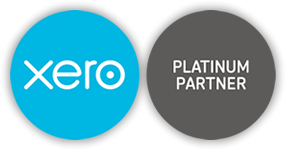Cash flow as a concept is more commonly used in the world of business, but having a steady flow of income and outgoings in your personal life is just as essential.
Understanding and managing your cash flow is important for financial stability and recent events have meant that many of us have had to reassess our spending.
While tracking monthly income and expenses is a common practice, it can be easy to overlook annual costs like insurance or holiday spending, leading to potential cash flow crises when these bills are due.
Mastering personal cash flow management is a crucial skill for long-term financial health and can help you set aside additional money for savings and investments.
Understanding personal cash flow
Cash flow for businesses involves comparing sales income to operational expenses, which can vary significantly from month to month.
For individuals, calculating cash flow means listing monthly income, including passive income sources, and subtracting all expenses.
It’s advisable to track expenses over three months for a more accurate financial picture, helping you understand your net worth better.
Being cash flow positive – where your income exceeds your expenses – is crucial, but it’s not enough if you’re living paycheque to paycheque without savings. An emergency fund – ideally equal to three months’ expenses – is vital for unexpected expenses like household repairs or bills.
Effective cash flow management is also key for future financial planning, allowing for debt-free purchases, investment opportunities, and big financial goals like home ownership or achieving financial independence. Conversely, being cash flow negative can lead to a debt spiral and damage to your credit score.
Strategies to improve your cash flow
Adopt the 50-30-20 Rule: This budgeting technique suggests allocating 50 per cent of your income to necessities, 30 per cent to wants, and 20 per cent to savings.
Adhering to this rule can help you meet financial goals, though adjustments might be needed for those living in high-cost areas.
Slash expenses: Review your budget to identify areas for cost-cutting. This could mean choosing more affordable streaming services, finding cheaper internet plans, or utilising money-saving tips for grocery shopping.
Automate savings: Instead of saving whatever is left at month-end, automate savings deposits right after you get paid.
This “pay yourself first” approach ensures you consistently save, contributing to a high-interest savings account.
Improving cash flow isn’t an overnight process. It involves setting long-term goals, like saving for retirement and developing a plan to achieve them.
It may seem daunting, but each step towards effective cash flow management is a step closer to financial security and independence.
Cash flow is a pathway to a secure and prosperous future. To find out how you can make the most of the money you save, please speak to our team.






 Request a call back
Request a call back